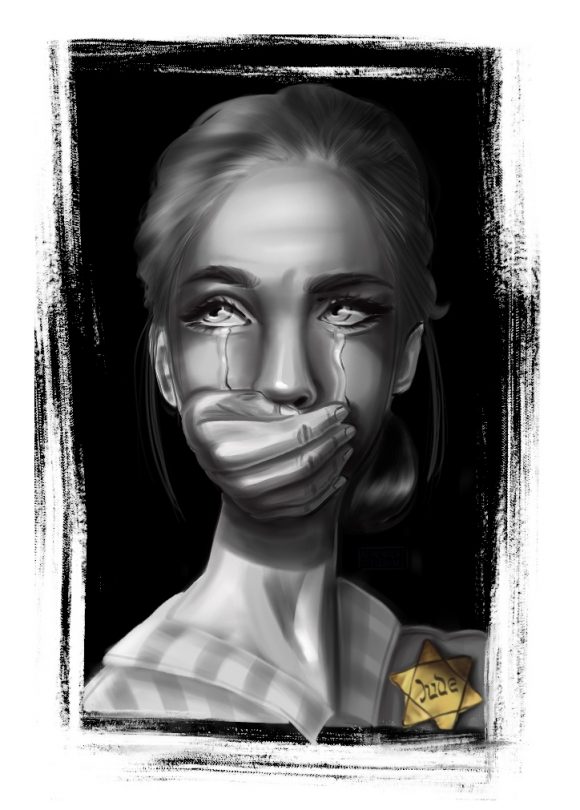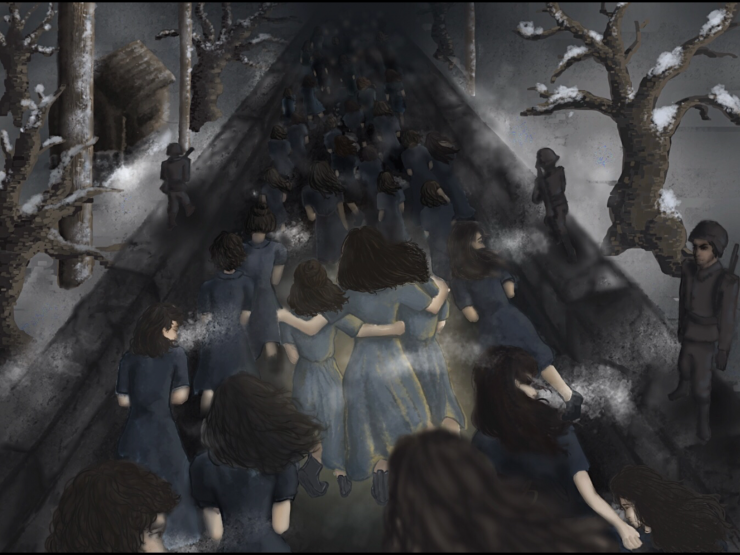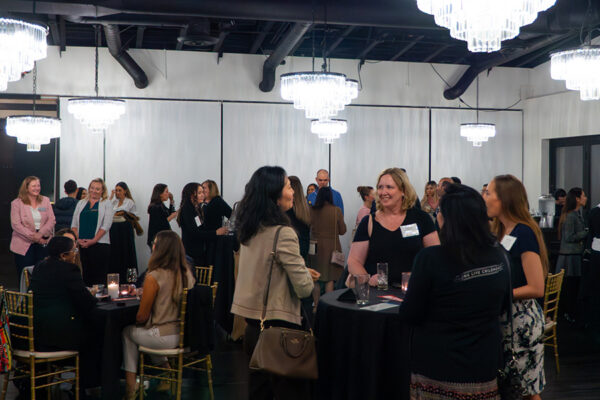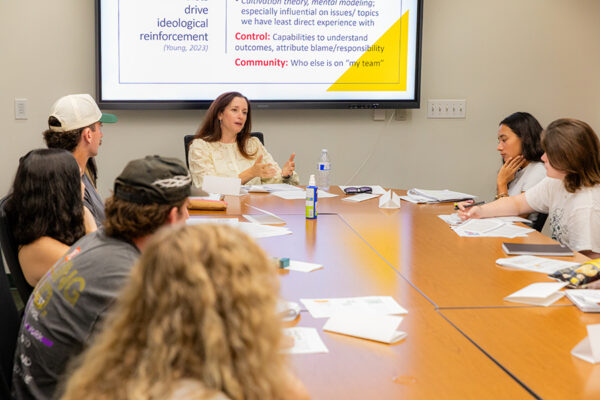Chapman University’s Annual Holocaust Art & Writing Contest welcomed more participants than ever this year, with 220 schools registered from 32 states and 11 different countries around the world. This year’s participation showed a significant increase in the number of international entries. 14 schools in Poland sent entries, and 1st prize recipients included students from South Africa and Romania, while students from Germany and Poland were finalists.
The winning entries were shared in a virtual recognition ceremony in March.
A Legacy of Shared Strength and Humanity

Mary Jane Pfaff, Grade 8.
Now in its 22nd year, the contest offers a unique challenge to high school and middle school students. Participants are asked to listen to the testimonies of Holocaust survivors and respond creatively, through prose, poetry, art and film. The submissions, poignant and evocative, never fail to impress.
But after a year of pandemic and quarantine, this year’s participants had an opportunity to reflect upon their own experiences of isolation, fear and loss, as they created work around the theme, “Sharing Strength, Sustaining Humanity.”
Marilyn Harran, Director, Rodgers Center for Holocaust Education and Stern Chair in Holocaust Education, praised the students for their submissions. “They recognized the differences between the era of the Holocaust and the the challenges of our own time, but the experiences of of separation and isolation — and in some cases the loss of family and friends — led students to connect to the testimonies with new empathy.”
“We Are All Connected”
As part of the presentation, special guest Peter Feigl, a Holocaust survivor and diarist, described his own experience during the Holocaust, and spoke to the importance of personal connections in times of crisis.
“My message to you today is that we are all connected and that our shared humanity requires us to stand up for one another — like the people of Le Chambon did for me,” said Feigl during his speech. “I am here today thanks to them.”
Feigl was nine years old when his family fled Austria for Belgium, and then France. When he was 13, his parents were arrested by the Nazi’s and killed in Auschwitz, though Feigl would not learn their fate for years. Feigl himself escaped only through the help of others, taking refuge with a community of Quakers in southern France, and then in Le Chambon, a community of mostly Protestants who saved roughly 4,000 Jews during the Holocaust. In 1944, he finally found safety in Switzerland.
“Being together with others in the same boat as I gave all of us the strength to go on with our lives,” said Feigl, recalling the other orphans who were his only family during his time as a refugee.
“It is so important to make people understand the meaning of family and friends,” said Holocaust survivor Rosette Fischer, who gave a congratulatory message during the presentation. Her words show an appreciation for what has always been the goal of the contest: “Thank you for choosing my past for a better future.”
Learn more about the Rodgers Center for Holocaust Education.




